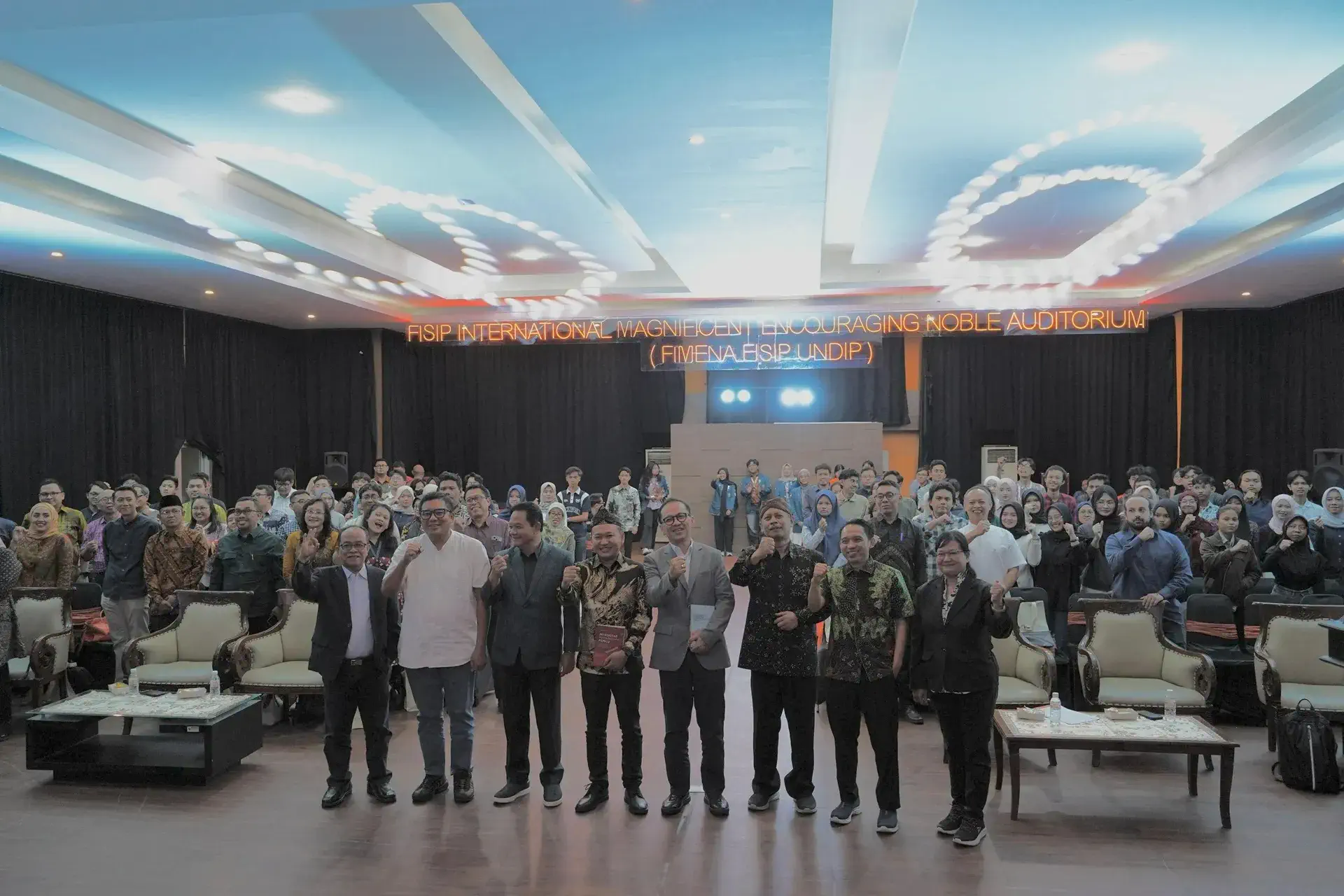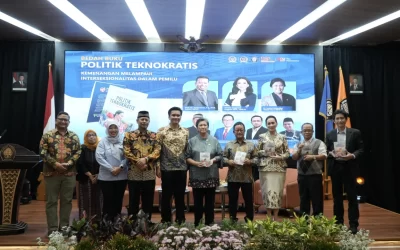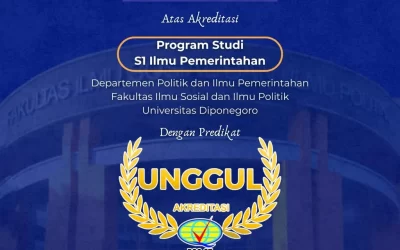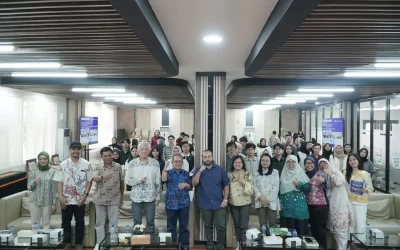Semarang, September 12, 2025 – The Department of Politics and Government, Faculty of Social and Political Sciences, Diponegoro University, held a National Seminar entitled “Election Organizer Integrity and the Future of Indonesian Democracy” on Friday (September 12) at the FISIP Undip Auditorium. The event was attended by 175 participants , including students, academics, and media practitioners.
The seminar featured four keynote speakers. Heddy Lugito, Chairman of the Election Organizer Honorary Council (DKPP) , expressed his view that elections should not be reduced to mere political competition. He believes elections are a mechanism for handing over the people’s mandate, the sanctity of which must be maintained. “Vote manipulation is a betrayal of democracy,” he asserted. He also added that the DKPP continues to ensure that all election organizers adhere to the code of ethics to prevent public trust from being eroded.
Meanwhile, Dr. Nur Hidayat Sardini highlighted the increasingly high political costs and clientelism that continue to permeate the electoral process. He argued that this creates inequality in political competition and undermines the legitimacy of election results. He emphasized that the integrity of the General Elections Commission (KPU), Elections Supervisory Agency (Bawaslu), and Elections Executive Board (DKPP) is a key foundation. “If the organizers lose their integrity, the entire election process will be flawed from the start,” he said.
From a media perspective, Yogi Arif Nugraha, Editor-in-Chief of Kompas TV, emphasized the importance of independent journalism in safeguarding democracy. He highlighted the significant challenges facing the media in the digital era, from information overload to political pressure. He argued that the media must function as a watchdog , not only delivering news but also educating the public with accurate and balanced information. “The media has a responsibility to maintain a healthy public space, free from disinformation, and aligned with the interests of the people,” he said.
Meanwhile, M. Saleh, ST., M.En., Deputy Speaker of the Central Java Regional People’s Representative Council (DPRD), emphasized that the role of the community is no less important than that of institutions. He identified three main pillars that must be strengthened: informed voters, a neutral bureaucracy, and law-abiding election participants.
According to him, without active public involvement, the pitfalls of political corruption and abuse of power will continue to haunt democracy. “A healthy democracy is born not only from institutions, but also from conscious and active citizens,” he explained.
In addition to presentations and discussions, the seminar also touched on the latest Economist Intelligence Unit (EIU) 2025 data , which places Indonesia’s democracy score at 6.44, categorizing it as a flawed democracy. This figure is a decrease compared to previous years and underscores the need for more serious democratic consolidation. This fact provides a shared reflection on Indonesia’s position on the global democratic map.
This national seminar not only enriched participants’ insights but also emphasized the role of the Department of Politics and Government, Faculty of Social and Political Sciences, Diponegoro University (FISIP), in providing academic contributions to strategic national issues. By presenting perspectives from regulators, academics, and the media, the event is expected to strengthen awareness of the importance







0 Comments